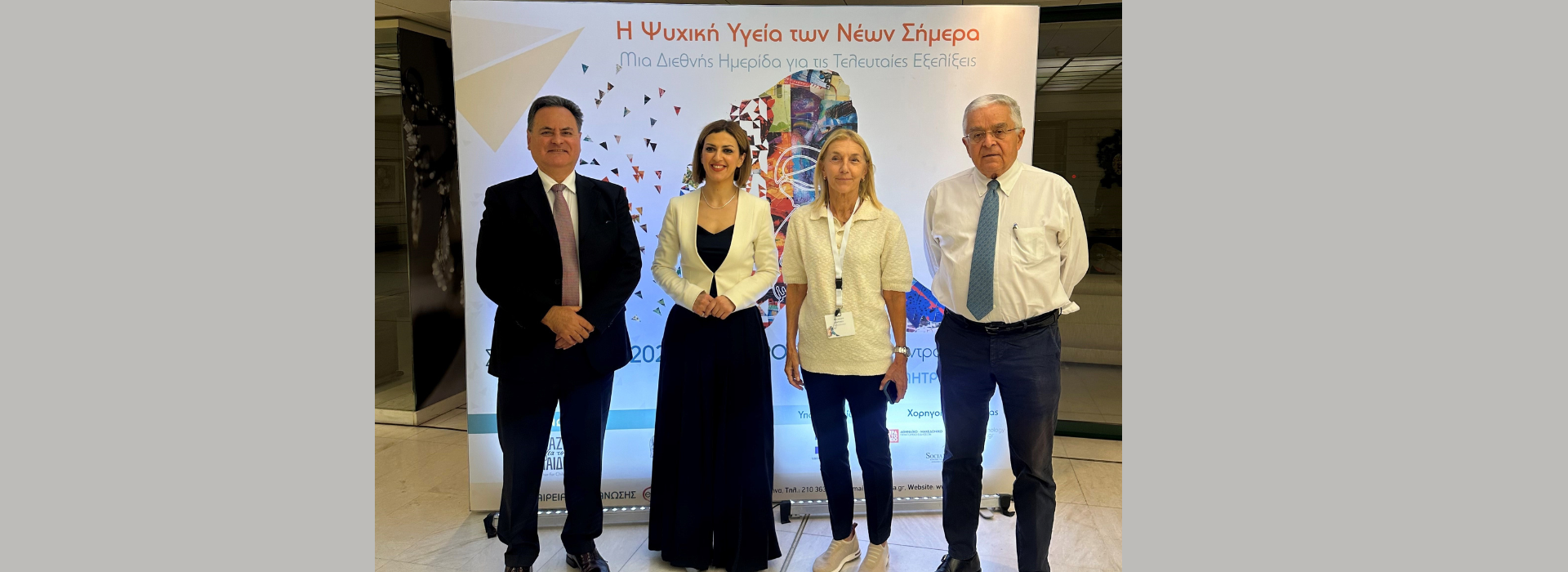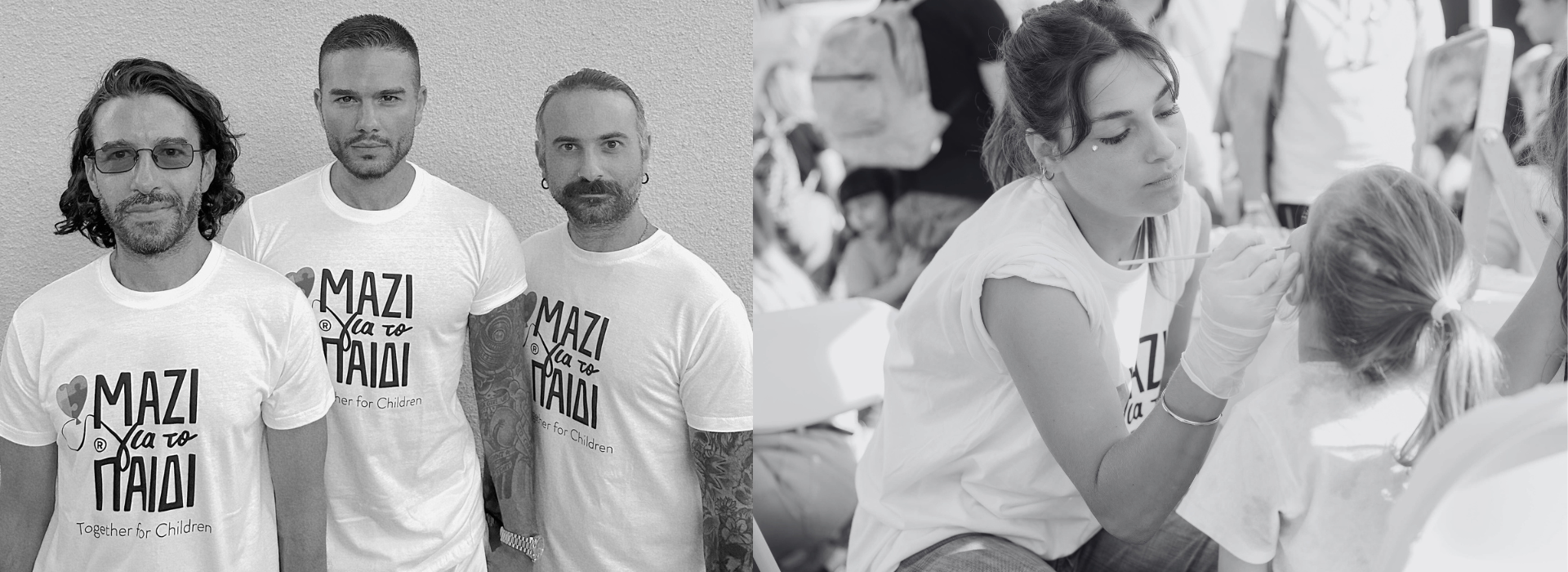
International Conference “Youth Mental Health Today” Held Successfully
“Together for Children” and the organization’s Scientific Director, Professor Argyris Striggaris, successfully organized the international conference titled “Youth Mental Health Today” on Saturday, October 5, 2024, at the Megaron Athens Concert Hall, Mitropoulos Hall. The event was held in collaboration with the 1st Psychiatric Clinic of Aiginiteio Hospital of the University of Athens and under the auspices of the Ministry of Health.
The conference was honored by the presence of the Deputy Minister of Health, Ms. Eirini Agapidaki, introduced by Emeritus Professor of Pediatrics and Honorary President of “Together for Children,” Mr. Ch. Bartsokas. Ms. Agapidaki delivered a speech, stating: “The international conference ‘Youth Mental Health Today’ organized by ‘Together for Children’ is an important initiative that highlights the challenges faced by young people in today’s world. Having started my career in the field of mental health, it’s true that once you are a psychologist, it defines you. Whatever you serve in the future, you always have that perspective. I feel truly happy that I can contribute to strengthening the mental health system of our country. We are working to change the environment that affects children, adolescents, and families and creates mental health issues.”
As Professor Argyris Striggaris, Scientific Director of “Together for Children,” emphasized: “Greek society is now very concerned about youth mental health and its future. The international conference of ‘Together for Children’ was held to engage society in discussions about mental health problems and the progress made, and to help find solutions. The conference received significant attention, as evidenced by the large participation and the strong presence of young people in the audience—those most directly affected by these issues. The conference brought together people from diverse fields and with different scientific backgrounds to discuss the pressing issues of mental health. This diversity was evident both in the audience composition and in the experts who came as speakers. The questions raised were critical, both inside and outside the hall, and will surely continue through collaborations that emerged from the conference.”
At the close of the conference, an audience member asked all the speakers what one thing they would do or request if they could. Each speaker had to suggest something different. Here is a summary of their responses, in alphabetical order:
- Professor Tamsin Ford (Cambridge) wants immediate interventions against school bullying. She mentioned there is substantial evidence that such interventions in schools can have a major societal impact.
- Professor Peter Fonagy (UCL, Anna Freud Centre) noted there is no correlation between the number of hours spent in school and how well a child performs academically or in terms of mental health. On the contrary, academic pressure is a risk factor—does a child who rushes from school to private tutoring and then straight to more studying have time for basic enjoyment in life? Reducing school hours and improving the school experience could make a big difference and is easy to implement.
- Assistant Professor Marinos Kyriakopoulos (University of Athens) emphasized the importance of improving communication between mental health services and related sectors (e.g., social services, schools, police, hospitals). He pointed out that electronic connectivity and collaboration between healthcare providers should be a priority for the benefit of children and their families.
- Emerita Professor Motti-Stefanidi (University of Athens) highlighted that positive integration of immigrants is crucial for both their mental health and the social cohesion and well-being of the host country. The future of immigrant children is closely tied to that of their new homeland. She proposed promoting acceptance of immigrants through awareness campaigns that showcase their contributions to the host societies, the importance of their positive adaptation, and fostering a sense of belonging among young immigrants.
- Professor Katerina Papanikolaou (University of Athens) pointed out the disparities in access to mental health services across different regions of the country. She wished for the development of an appropriate plan to ensure that all young people, regardless of location, have access to the necessary mental health services.
- Professor Neni Pervanidou (University of Athens) stressed the close link between pediatric care and children’s mental health—youth health must include mental health. She requested that new pediatricians receive more training and exposure to child mental health and developmental issues so they can provide comprehensive care to their patients and facilitate connections with child psychiatrists and other mental health specialists.
- Professor Nikos Stefanis (University of Athens) called for the inclusion of all mental health professionals and the interdisciplinary, multi-sectoral approach to youth mental health issues. He emphasized that in our country, it will be important to develop a model that is not purely medical but is based on a holistic approach.
- Professor Argyris Striggaris (University of Athens, UCL, Anna Freud Centre) stressed the need for transparency and evidence-based approaches in documenting and addressing youth mental health problems so that we know whether what we are doing is helping or harming. He noted that Greece is one of the few countries that lacks epidemiological data on children’s mental health and reiterated the urgent need for scientific documentation of the problems young people face in our country and the ways we address them. Only then can we see improvements in the services we provide to young people.
It is worth noting that the conference began on an optimistic note: young mental health professionals presented their excellent work, marking the official opening of the conference: Mr. Nikos Saridis (psychiatry resident) spoke about the increase in mental health issues among youth; Mr. Lambros Asimakopoulos (psychiatry resident) discussed understanding the etiology of body dysmorphia in adolescents; Ms. Peiou (child and adolescent psychiatry resident) presented the results of a national study on medical specialty residents; and finally, the team of psychologists from the Counseling Center of “Together for Children” (Ms. Eleni Koutsopoulou, Ms. Maya Metaxopoulou, Ms. Ioli Oikonomou, and Mr. Nikos Giotas) showcased the significant work that “Together for Children” does across Greece, especially for vulnerable children.
The conference was made possible through the generous support of Mr. George Konstantellis.
Media Sponsors: Athens-Macedonian News Agency | https://www.psychologynow.gr/ | www.socialpolicy.gr





